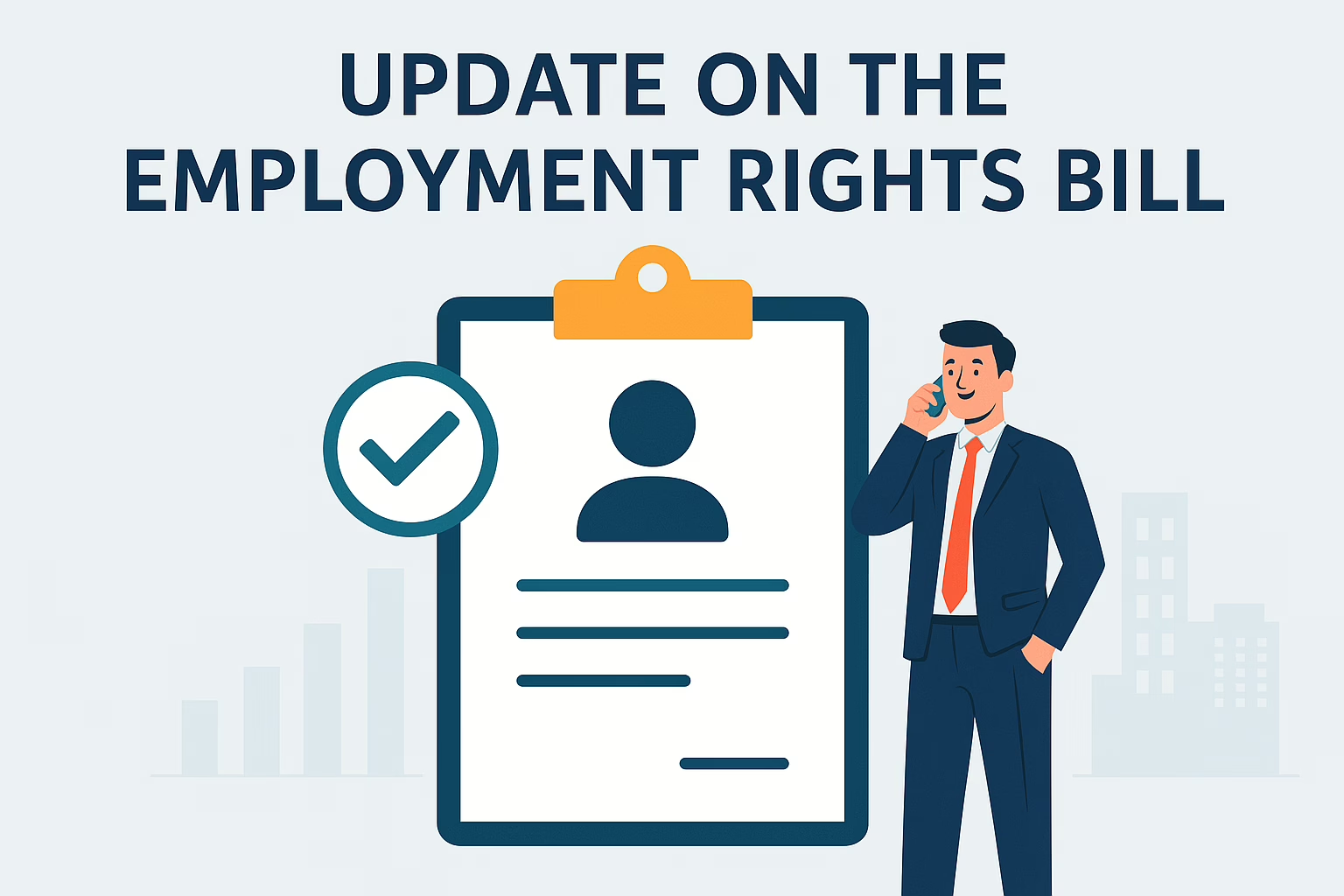Employment Rights Bill – Summary of Key Measures
The Employment Rights Bill represents the most significant upgrade to UK employment law in a generation. Designed to “Make Work Pay,” the Bill addresses flexibility, fairness, enforcement, and well-being in the modern workplace. Here’s what’s included:
- Security & Fairness for Workers
Zero Hours Contracts: Workers gain the right to guaranteed hours, reasonable shift notice, and compensation for late cancellations.
“Fire and Rehire” Ban: Dismissals due to refusal to accept contract changes will be classed as automatically unfair—except where employers have no alternative.
Day-One Rights: Employees can claim unfair dismissal from day one, with a new statutory probation period introduced to support employers.
Redundancy Reforms: Stronger obligations to consult on large-scale redundancies and close loopholes in maritime redundancy rules.
- Improved Pay Protections
Statutory Sick Pay (SSP): Removal of both the lower earnings limit and waiting period—making SSP available from day one.
Tipping Laws: Employers must consult workers when creating tipping policies.
Fair Pay Agreements: For social care workers across England, Scotland, and Wales.
Two-Tier Workforce Code: Ensures workers on outsourced public contracts receive comparable terms.
- Family & Work-Life Balance
Day-One Access: Immediate eligibility for Paternity Leave and Unpaid Parental Leave.
Bereavement Leave: New unpaid leave entitlement following the loss of a loved one.
Pregnancy & Maternity Protections: Extended protection for six months after returning to work.
Flexible Working: Strengthened right to request, with employers required to justify rejections.
- Equality, Dignity & Respect
Sexual Harassment: Employers must take all reasonable steps to prevent harassment—including by third parties.
Whistleblower Protections: Harassment will now qualify as protected disclosure.
Menopause & Gender Pay: Employers must produce action plans to address these issues proactively.
- Modernising Industrial Relations
Trade Union Reforms:
Repeal of key provisions of the Trade Union Act 2016.
Repeal of the Strikes (Minimum Service Levels) Act 2023.
Strengthened union access, digital rights, and protections for representatives.
Clearer processes and stronger protection for workers engaged in industrial action.
- Better Enforcement & Support
Fair Work Agency: A new regulator combining enforcement for:
National Minimum Wage
Gangmasters Licensing
Holiday pay
Labour abuse and exploitation
Tribunal Claims: Time limit to bring a claim extended from 3 to 6 months.
Umbrella Companies: Now regulated under the Employment Agencies Act 1973.
Timeline & Implementation
Most reforms will take effect no earlier than 2026.
Additional details will be provided through secondary legislation, consultation, and Codes of Practice.
Employers will have time and guidance to prepare for the changes.
The Halo Perspective – podcast
Need More Information?
Speak one of our team today and ensure your business stays compliant

